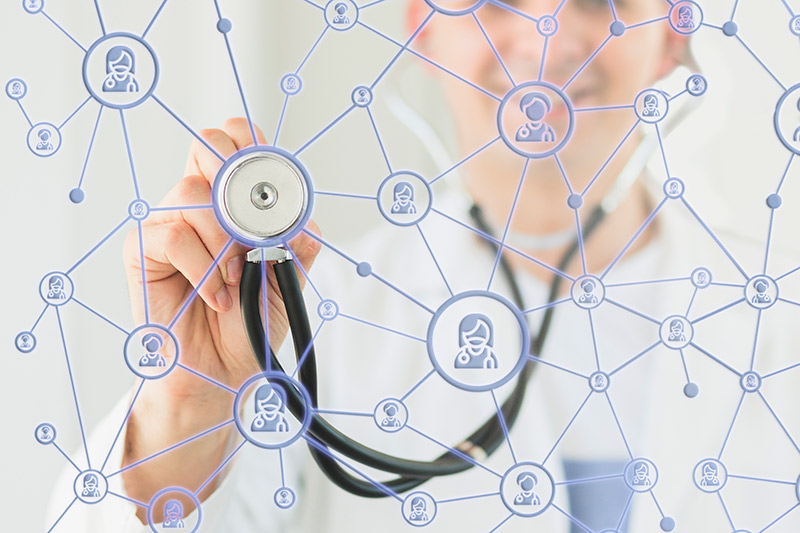With technology making waves across various industries, it is hardly a surprise that the healthcare sector has felt the impact too. Hospitals are becoming more invested in technologies like RFID and barcode scanning to reduce costs, improve safety, and enhance the quality of care for patients.
Recent market research has speculated that by 2021, we will witness an exponential growth of RFID technology in the industry. One can already see the numerous benefits that RFID applications bring to medical professionals – from tracking surgical tools to tracking patients and staff, and more.
Here are a few benefits of incorporating RFID devices in the healthcare industry.
Tracking And Authenticating Inventory
RFID technology can be used to track inventory in almost any industry. However, it is especially beneficial in the pharmaceutical sector which involves tracking numerous liquid-filled assets. Technology such as RFID tags can easily track these assets, and are far more convenient than time-consuming manual counts and barcodes. Every hospital has an ever-growing supply of medicine that must be monitored to keep the stock readily available for use. RFID seems to be perfect for the task!
Some hospitals also use RFID technology for authentication purposes. They place RFID tags on medicine bottles and encrypt them with specific information which is later analyzed by medical professionals to verify their authenticity.
Tracking The Patients
RFID technology (both passive and active) has been proactively used in hospitals to track patients and their carers. By outfitting patients with RFID tags, one can easily verify their information, reduce bottlenecks, and identify their location.
Passive RFID systems like RFID wristbands usually help in maintaining and verifying patient records. The information is printed on the bands with data records stored on the tag’s chip. This helps the staff identify patients and their condition during emergencies and ensure that they are not given the wrong medicine. On the other hand, active RFID applications are used for tracking staff and patients. They are also in Real-Time Location Systems for identifying problems with the workflow for increased efficiency.
Tracking Surgical Tools
Doctors have a daily need for surgical tools to perform surgeries. Tools like scalpels, clamps, scissors, and retractors need to be always on hand, clean, disinfected, and ready to use. By tracking these items with RFID tags, medical professionals can make sure that no equipment has gone unsterilized prior to use. The tags are usually embedded in or on the surgical equipment.

Tracking Single-Use Items
Single-use inventory items like gauze, paper, boxes of gloves, and plastic vials need to be always kept on hand. This is ensured by implementing RFID technology in the inventory management system. Although using high-cost RFID tags to track low-cost, single-use inventory items may seem like wastage of money, there are other alternatives for it. Hospitals can use RFID inlays to outfit single-use items and store in inventory rooms and shelving units. Hospitals can also track their personnel in conjunction with an inventory tracking application to ensure that inventory is used properly, and there is no careless waste.
Tracking Large Equipment
Large equipment (hospital beds and portable testing machines) has a high replacement cost if harmed or stolen. Keeping this in mind, hospitals can integrate RFID technology into their systems to keep track of such items. Not only that, but RFID is also used for assets that are not readily available and would take time to replace. Active RFID in Real-Time Location System (RTLS) is commonly used for tracking large and expensive equipmen
Tracking People And Staff
In order to ensure the total safety and well-being of patients, hospitals must keep track of the visitors. Understanding this requirement, many hospitals have incorporated RFID-enabled badges that limit access of outsiders to certain areas and stop people from wandering around. In this system, the staff members need to tap their RFID-enabled badges to door readers to gain access.
Tracking Laundry
Towels, blankets, sheets, pillows – these are a few things you will find in every hospital room. Since maintaining hygiene is an important aspect of healthcare, laundry items need to be washed and disinfected before every new patient is admitted. An efficient way of ensuring this is by using RFID laundry tags. These tags not only help keep track of laundry items, but also tell if they are sterile or not.
If you need more information on RFID technology and how it works, get in touch with our team. We will answer all your questions and resolve any concerns you may have. Call us today at +1 203 925 8388.


